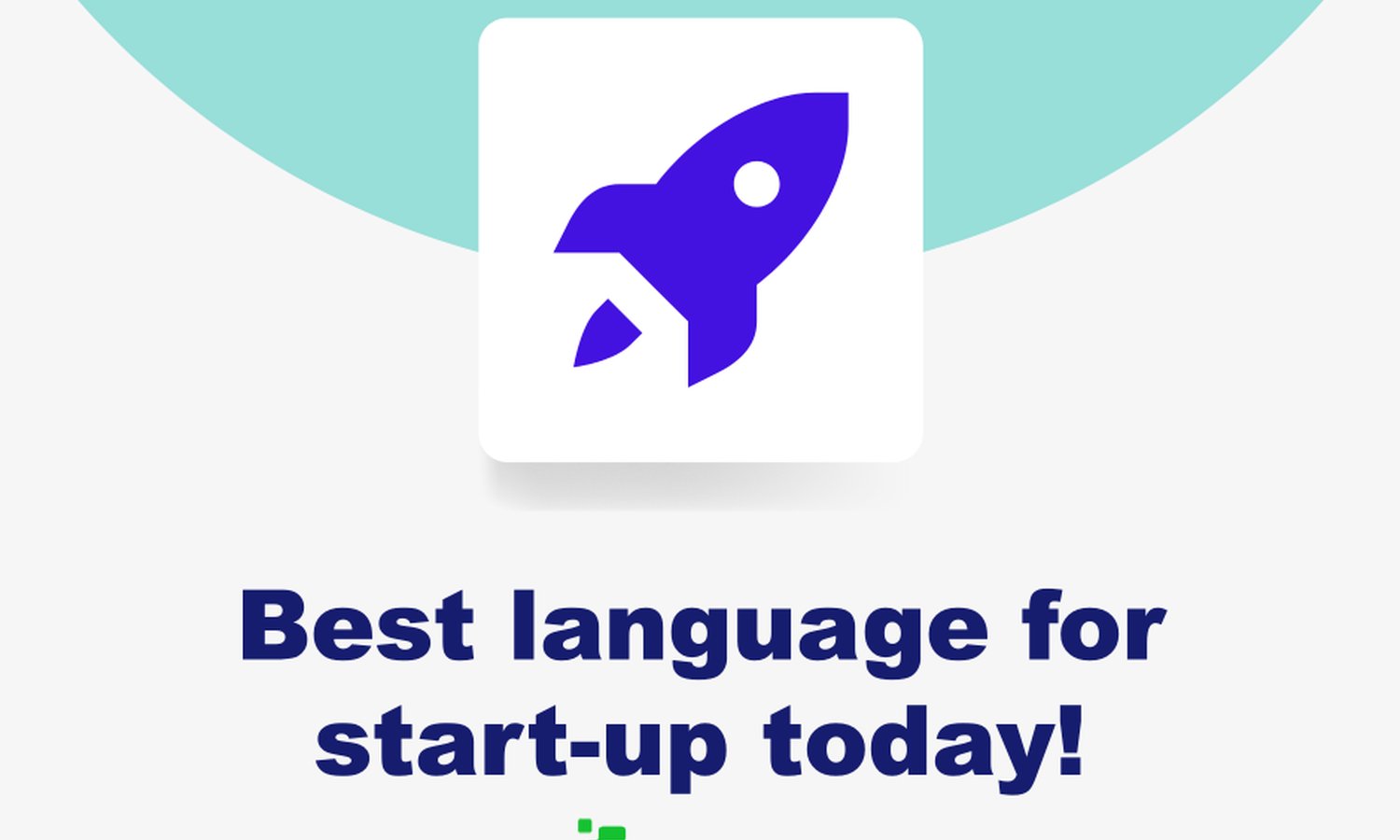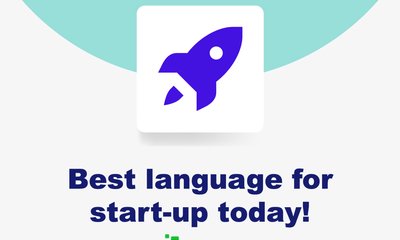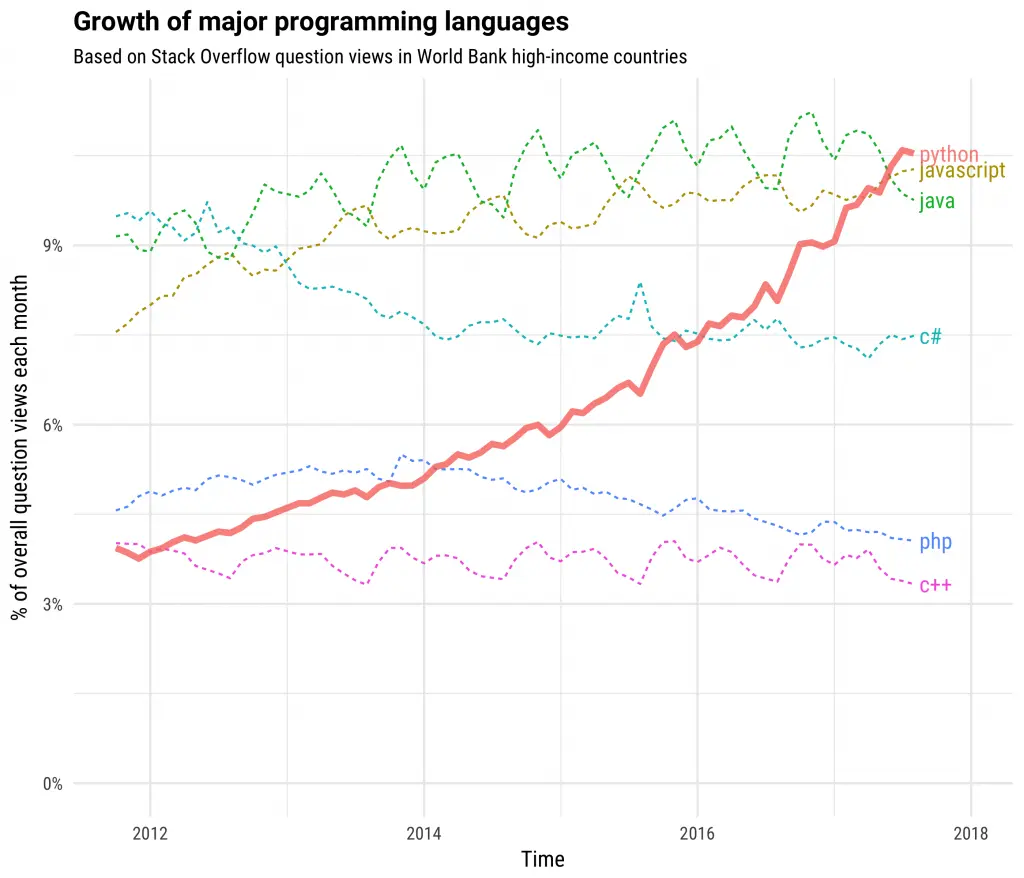Python - The best language for Startups
By hientd, at: Oct. 21, 2023, 9:46 p.m.
Estimated Reading Time: __READING_TIME__ minutes


Why Python Is the Best Programming Language for Startups
Choosing the right programming language for your startup is a critical decision. With a plethora of options available, selecting the most suitable language is not a matter of popularity or recommendations but a strategic choice with sound reasoning. The choice of programming language for a startup should align with its unique requirements and goals, as the wrong choice can lead to technical challenges, overspending, and a lack of adaptability to market demands.
Understanding the Importance of Language Choice for Startups
Programming languages vary significantly in terms of their capabilities and intended use. Each language serves specific purposes – for instance, PHP is primarily for web development, C is for low-level programming, and versatile languages like Python, Java, Go, and JavaScript come with their distinct features and performance levels. Making the right choice in a programming language can offer numerous advantages for your startup, such as:
-
Time and Cost Savings: The right language can help you quickly implement ideas and save on development costs.
-
Scalability: It enables easy team scaling, product scaling, and the incorporation of new features.
-
Effective Support: Choosing the right language ensures efficient post-release product support.
However, an ill-advised choice can lead to early technical problems, budget overruns, and a lack of flexibility, potentially harming your startup's chances of success.
Why Startups Are Unique
Startups operate under distinctive conditions that require a specific approach to development. These characteristics include:
-
Limited Budget: Most startups face budget constraints, with the risk of running out of funds a significant concern.
-
Time Sensitivity: Startups need to find partners and investors quickly and choose a growth strategy that offers the best chance for success.
-
Uncertainty: Operating in a highly uncertain environment, startups must be flexible and prepared to adapt to market changes rapidly.
In this context, the choice of programming language gains even more significance. It becomes a crucial factor in mitigating risks and reducing development costs.
Top Programming Languages for Startup Development
Selecting the right programming language is foundational for a startup's performance, scalability, user experience, and future growth. A study by Coding Dojo analyzed the most popular programming languages used by some of the world's largest unicorn startups. The top five languages are:
-
Python: Python stands out as the fastest-growing language, consistently popular since 1991, and finds applications in diverse domains, including data science, machine learning, and AI.
-
JavaScript: JavaScript is a universal language suitable for a wide range of applications, including mobile, web, desktop, gaming apps, chatbots, and machine learning.
-
Java: Java is known for its use in building enterprise applications that need to scale.
-
C++: C++, one of the oldest languages, combines features of both high-level and low-level languages.
-
Ruby: Ruby is an open-source language well-suited for quick web application development.

Why Python Is the Best Choice for Startups
Python emerges as a strong contender for startup development due to its unique qualities:
-
Ease of Learning: Python is known for its intuitiveness and ease of learning, making it an excellent choice for both novice and experienced developers.
-
Rapid Development: Python's code efficiency and code reuse capabilities make it ideal for building Minimum Viable Products (MVPs) quickly.
-
Innovation: Python is both time-tested and innovative, constantly evolving and enriched with new libraries and solutions.
-
Popularity and Universality: Python's popularity translates into a large global developer community, making it easy to find talent and replacements when needed.
-
Excellent Documentation and Support: Python boasts top-notch technical documentation and a supportive community, reducing development time.
-
Suitability for AI, ML, and Big Data: Python is a prime choice for handling data-intensive tasks, with powerful libraries like Pandas and NumPy.
-
Open Source and Scalability: As an open-source language, Python is highly adaptable and can be modified to meet specific project needs. Its scalability ensures the flexibility required for a startup's growth.
-
Minimal Development Team: Python's concise codebase allows for smaller development teams, reducing costs significantly.
Choosing Python with Django
In addition to selecting Python as the programming language, startups can benefit from using the Django framework. Django simplifies development and reduces development time through principles like "Don't Repeat Yourself (DRY)" and rapid development. It also emphasizes security and offers strong technical documentation, making it an excellent choice for startup development.
Notable Examples of Python/Django-Based Products
Several well-known projects and companies, including Google, Instagram, Spotify, and NASA, rely on Python with Django. Other successful startups and businesses that have chosen Python/Django include PADI Travel, Festicket, Password Boss, Hudson, Prezi, and MoneyPark.
Top Use Cases for Python
Python's popularity and relevance extend to a range of domains. Here are some of the top use cases for Python:
Data Science: Python is the preferred language for scientific computing and data analysis. Its extensive library ecosystem supports a variety of research fields, including statistics, bioinformatics, psychology, and astronomy.
Machine Learning/AI: Python powers machine learning and artificial intelligence applications through libraries like PyTorch, TensorFlow, and scikit-learn, enabling tasks such as image recognition, speech recognition, and predictive analytics.
Backend Development: Python offers a wealth of web application frameworks like Django and Flask, making it well-suited for backend development. Its simple syntax and code reusability contribute to efficient and cost-effective development.
Game Development: Python simplifies game development, with libraries like PyGame providing the flexibility required to create video games quickly.
The Advantages of Python for Startups
Besides Python's technical capabilities, several key advantages make it a standout choice for startups:
1. It's Free: Python operates under an open-source and free-to-use model, making it accessible to individuals and businesses of all sizes.
2. Huge Developer Talent Pool: Python's popularity has led to a large and growing community of developers, making it easier to find skilled professionals for your project.
3. Easy to Integrate: Python is often referred to as a "glue language" due to its seamless integration with various programming languages and technologies. The Python Package Index provides access to third-party modules for effortless integration.
4. Faster Development: Python's simplicity and code reusability lead to rapid development, helping startups launch new features or products quickly while staying within budget and timelines.
5. Abundance of Libraries and Frameworks: Python offers a wide range of libraries and frameworks that save time and resources during development. These ready-to-use modules can significantly lower coding time, reduce overall development costs, and expedite product delivery.
6. Bug-Free Code: Python's built-in unit testing framework helps identify and rectify code flaws early in the development process, resulting in higher quality code and faster time-to-market.
7. Versatility, Reliability, Scalability, Flexibility: Python's versatility allows it to be used across various environments, from hardware programming to web development. It is known for its scalability and flexibility, enabling experimentation with new ideas quickly and efficiently.
8. Extensive Support Community: Python boasts one of the most vibrant developer communities, offering a wealth of documentation, guides, and video tutorials for all levels of expertise.
9. High Code Readability: Python emphasizes code readability through its design philosophy, using indentation and plain English-like syntax. This makes it accessible and understandable to a wide range of developers.
10. User-Friendly: Python's straightforward syntax makes it an expressive and user-friendly language, ideal for both beginners and experienced developers.
11. Portability: Python's high portability allows code to be executed across various operating systems without modifications, enhancing cross-platform compatibility.
12. Relevance to Modern Software Needs: Python plays a crucial role in contemporary tech fields such as cloud computing, machine learning, and big data, making it highly relevant to today's software requirements.
13. Widely Taught at Universities: Python is a primary programming language taught in schools and colleges due to its applications in deep learning, data science, artificial intelligence, and more.
14. Quick Prototyping: Python's fast development and abundant infrastructure support quick prototyping, ideal for creating Minimum Viable Products (MVPs) and iterating based on customer feedback.
15. Wide Range of Packages: Python's extensive package ecosystem, with over 147,000 packages, reduces the need to build functionality from scratch, benefiting developers of all experience levels.
In conclusion, the choice of a programming language can significantly impact your startup's success. Python, with its unique combination of capabilities and advantages, positions itself as a strong contender for startups seeking rapid development, cost-effectiveness, scalability, and a supportive community. Whether you are venturing into data science, AI, web development, game development, or other fields, Python is a versatile and accessible choice.





